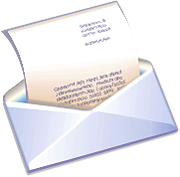 Writing queries have always been an important skill to develop and many sites and blogs have devoted posts to them, critiques of them, and suggestions for them. I wanted to share a few links that I’ve found helpful in this regard in addition to a great tool for tracking your queries and targeting agents and publishers for your work.
Writing queries have always been an important skill to develop and many sites and blogs have devoted posts to them, critiques of them, and suggestions for them. I wanted to share a few links that I’ve found helpful in this regard in addition to a great tool for tracking your queries and targeting agents and publishers for your work.
Queries
There are hundreds of sites and blogs covering the query, but the general idea boils down to three items a query should contain:
- Introduction. If you met the agent or editor at a conference or elsewhere, mention that here, along with if they requested a query and/or sample pages. If you didn’t meet the editor or agent anywhere, you can jump right into #2.
- Introduce your manuscript–title, type, and number of words (in the order that makes sense to you), along with a brief, compelling summary of the story that also shows the voice and/or tone.
- A bit of background on you–any published books, writing credits, memberships to pertinent organizations–like the Society of Children’s Book Writers and Illustrators (SCBWI) and any expertise that relates to the book.
For query junkies and those who really want to immerse themselves in queries that worked and query critiques, check out AgentQuery Connect.
Writing Queries for Picture Books
It’s always seemed a little odd to write a query for a picture book since (a) the manuscript may actually be shorter than the query and (b) most publishers and agents ask for the complete manuscript anyway. However, the query is a great place to predispose or interest the editor or agent in your work so it’s worth crafting a well-written query that not only provides a summary of your story, but also gives a taste of your voice.
This post is a couple of years old, but it provides a good example of a query and an excellent explanation of what to include.
Writing Novel Queries
There are a zillion sites that not only provide examples of good queries, but also offer critiques. You can find many of them by doing your own online searches, but this link at GalleyCat is a list of queries of all levels and genres that actually got an agent’s attention so check it out!
Tracking Your Queries
Before I had an agent, I kept track of all my queries and submissions in an Excel spreadsheet. That’s still a decent way to go, but I discovered Query Tracker recently and thought it was a wonderful tool and resource; something I’m always on the lookout for when I’m teaching classes. This site has a three-fold purpose–(1) finding agents and editors to target, (2) organizing and tracking your queries, and (3) sharing information about agents and publishers. This last one is invaluable, but is all self-serve–meaning it relies on parties on both sides to enter pertinent information and updates so it’s only as good as those who go back and update their information and progress.
If you have other tips on querying, share them here!




I never really wanted anything to do with business or selling but the more I learning about writing books the more I learn about marketing. It’s not something I’m comfortable with but I need to be.
Blogs like yours is a great tool. You break it down. You make it real. Thank you.
That whole aspect isn’t my favorite thing either, but like you said, we need to know about it and get a little comfortable with. Glad my blog helps!